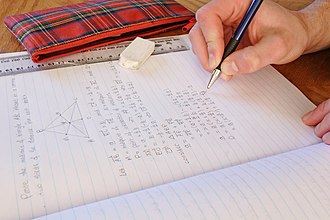The integral quality of professionals is the ability to rationally spend their time, to effectively organize their work, the ability to meet the execution of work in a certain time frame. A student who does not know methods of personal time organizing cannot either become a full-fledged specialist or to study fully.
The development of approaches in the organization of time has resulted in the formation of a system of techniques called by the term “time management”.
If you ask yourself what you want to achieve in life, who you want to become in 10 years and realize that your goal is success, you cannot do without competent time management. Even now, at that stage, when all life is ahead and you can learn to live it competently.
There are certain rules without which proper planning of study time is impossible, including the rules for organizing and performing homework. The Pro-Papers experts sampled the most effective of them.
So, in order to properly allocate time for doing homework, in order to make assignments easier and faster, preparing should begin in class.
1 Lectures and seminars
Advertisement
First, you need to go to lectures and seminars. Besides the fact that the student will miss the material, the more he/she misses, the more he/she wants to miss.

2Even if a lecture is boring
Advertisement
Keep notes at lectures and seminars. Even if a lecture is boring, you still need it. It is useful to keep abstracts in different colors of pens and markers, to make notes, if somewhere in the course of a lecture it is not clear and it is impossible to clarify right away - mark it to return to this question. If you missed a couple, it is very useful to rewrite (with your hands to remember and not just scan, as some do) someone else’s outline, and it is advisable to take it from a person who takes notes well.

3 Alternative presentation of a material
Advertisement
If you still have questions after a lecture, for example, because some part of a material still remains incomprehensible to you, then it is very useful to come up with these questions to a lecturer. Typically, teachers are happy to answer questions and in other words, can explain something specifically for you (or at least tell you where you can read an alternative presentation of a material).

4Educational material
Advertisement
Homework must be done on the day it is received. Any material learned in class is quickly forgotten. In the first hours after memorizing fresh material, the fullness of memorization rapidly falls down. During the first 10 hours after memorization, 65% of the received information disappears. Further, the intensity of forgetting decreases and by the end of the second day, another 10% of information disappears. Thus, in two days only 25% of what is remembered remains in the person’s memory. Therefore, an educational material, fixed on the day of his perception, remains in memory longer.

5Achievable stage
Advertisement
Before you start homework, make yourself a detailed list of tasks. If this is a big, difficult task, break it into subtasks. Ensure that the seemingly terrible task is divided into paragraphs, each of which is a small, uncomplicated, achievable stage on the path to the implementation of the planned one.
